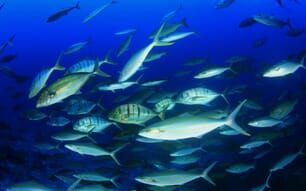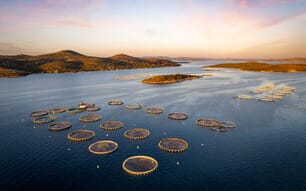The revelations, published in the Marine Policy academic journal, show dangerous levels of overfishing has been permitted in European waters over the last 15 years.
The results also show:
- Ministers have consistently ignored warnings: EU Ministers have continued to set limits above scientific advice for 7 out of every 10 fishing quota, allowing unsustainable fishing to continue.
- Spain, Portugal and the Netherlands top the overfishing league table: Negotiating the largest increase to their fishing quota, exceeding scientific advice by 37%, 37% and 26% respectively.
- Improvements are being made: The amount of quota set above advice has declined from 33% in 2001 to 7% in 2015, but last year 30 quotas were still set at least 50% above advice.
- Still a long way to go: On 14 and 15 December ministers will meet to negotiate the levels at which fishing quotas for 2016 will be set.
Decades of overfishing in European waters have led to depleted fish stocks and billions of euros in lost economics potential. Rebuilding fish stocks to sustainable levels would result in higher catches, greater profits for businesses, more jobs and higher wages.
Every year, the EU is provided with clear scientific advice on safe fishing levels, designed to encourage sustainable fishing. Yet our analysis shows that from 2001–2015, 7 out of every 10 fishing quotas was set on average at 20% above the recommended levels.
Spain, Portugal and the Netherlands are the top three EU Members States responsible for overfishing. These countries were found to have the largest amount of gross tonnage caught above scientific advice, when calculated as a percentage of their total fishing quota to account for differences quota sizes.
Griffin Carpenter, Economic Modeller at the New Economics Foundation, and coauthor of the Marine Policy journal article, said: “If fish stocks are to be rebuilt to sustainable levels in Europe, this practice of setting fishing limits above scientific advice must end. Healthier fish stocks will mean more fish, more jobs, more profits and higher wages.”
“There is a lack of transparency around these closed-door negotiations but we can see from the results that some EU Member States are negotiating much higher levels of quota above scientific advice. Pressure should be placed on these Member States to recognise the benefits of following scientific advice and managing marine ecosystems in a sustainable manner.”
While EU member states remain far off meeting the recommended targets, the average level at which quotas have been set above advice has fallen from 33% to 7%. This is a positive step – some EU fish stocks have begun to recover and transition towards reaching maximum sustainable yield (MSY).
The negotiations
Every year, fishing limits or quota are set by the Council of Fisheries Ministers that represent each EU Member State. The EU asks the International Council for the Exploration of the Sea (ICES) – the main scientific body covering Northeast Atlantic waters – for advice on where to set fishing limits to ensure fleets and member states are fishing to sustainable levels.
Ministers enter closed-door negotiations with this advice in-hand, but continue to leave with most fishing quotas set to levels dangerously above scientific advice.
Overfishing is damaging the EU economy
Delaying the recovery of EU fish stocks by setting fishing limits above scientific advice has huge economic costs. Research published by NEF earlier this year (see note 4) showed that the EU would increase catch by 2 million tonnes, raise an extra €1.6 billion in revenues and create over 20,000 jobs, by fishing sustainably and restoring fish stocks to maximum sustainable yield (MSY).
Much more needs to be done if EU member states are going to reach the recommended levels for fishing. A commitment to making these improvements was also agreed in the reform of the Common Fisheries Policy in the 2013 reform.
EU Ministers will have yet another opportunity to halt this 15-year trend in overfishing when they meet on 14 and 15 December to negotiate the levels at which fishing quotas for 2016 will be set.



